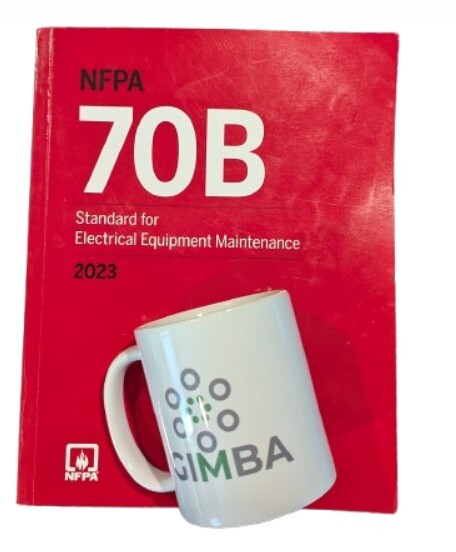More from The National Fire Protection Association
Related Blogs
Archives
Social Share
What You Need to Know: Is NFPA 70B Mandatory for Workplace Safety?
Body

In the world of commercial property maintenance, electrical safety is of paramount importance. Is NFPA 70B mandatory? Property owners and managers need to ensure that all electrical systems are functioning properly to reduce the risk of electrical hazards, such as fires or system failures. One significant standard that plays a critical role in maintaining electrical safety is NFPA 70B. This document provides guidelines for the maintenance of electrical systems to ensure their safe operation and to extend their service life.
What is NFPA 70B?
NFPA 70B, or the National Fire Protection Association's Standard for Electrical Equipment Maintenance, is a comprehensive set of guidelines intended to promote safety and reliability in electrical systems across a variety of settings, including commercial properties. The standard outlines the proper procedures for maintaining electrical equipment, focusing on preventing electrical hazards and extending the lifespan of electrical systems.
It includes detailed recommendations for tasks such as regular inspections, testing, cleaning, and replacement of parts in electrical systems. While the National Fire Protection Association 70B provides best practices for maintaining safe and reliable electrical systems, many property owners and managers often wonder: Is NFPA 70B mandatory for commercial properties?
Is NFPA 70B Mandatory for Commercial Properties?
While the National Fire Protection Association 70B itself is not a law or regulation, compliance with its guidelines is strongly recommended for ensuring electrical safety. However, the requirements outlined in the National Fire Protection Association 70B are often referenced by local building codes, insurance policies, and regulatory authorities. In many cases, adhering to the practices outlined in the National Fire Protection Association 70B is essential for meeting legal safety requirements.
The standards are designed to enhance the safety of electrical installations, and neglecting them can result in severe safety risks, costly damages, and potential legal ramifications. In the absence of a legal obligation, commercial property owners and managers are still encouraged to follow the guidelines set out in the National Fire Protection Association 70B to avoid any issues that may arise from non-compliance.
In some regions or industries, local regulations may require compliance with the National Fire Protection Association 70B, making it mandatory under certain circumstances. For example, certain jurisdictions may enforce stricter electrical safety measures in commercial buildings, particularly those housing hazardous operations, critical facilities, or large numbers of occupants.
Why Should Commercial Properties Follow NFPA 70B Guidelines?
1. Enhanced Safety
The primary reason commercial properties should adhere to the National Fire Protection Association 70B is safety. Electrical systems in commercial properties can be complex, and improper maintenance can lead to dangerous conditions, such as electrical fires, power outages, or system failures. Regular maintenance and inspections, as outlined in the National Fire Protection Association 70B standard, can significantly reduce these risks by identifying issues before they escalate into hazards.
2. Insurance Compliance
Many insurance companies require commercial properties to maintain electrical systems according to the National Fire Protection Association 70B guidelines. Failure to comply with these standards may result in denied claims or even higher premiums. Property owners who follow the National Fire Protection Association 70B’s recommendations are more likely to receive favorable insurance terms and avoid the risk of policy cancellations due to non-compliance.
3. Regulatory Requirements
As mentioned earlier, while the National Fire Protection Association 70B may not always be directly mandatory, it is often incorporated into local building codes or safety regulations. If a commercial property is subject to local codes that require adherence to the National Fire Protection Association standards, then following the National Fire Protection Association 70B becomes a legal necessity. Additionally, federal agencies such as OSHA (Occupational Safety and Health Administration) may reference the standard for workplace safety, particularly when it comes to the maintenance of electrical systems in commercial properties.
4. Reducing Downtime and Repair Costs
Maintaining electrical systems according to the National Fire Protection Association 70B standard can help prevent costly breakdowns and minimize downtime. Regular inspections and preventative maintenance allow property owners to identify issues before they lead to equipment failure, saving on costly repairs and the disruption of business operations.
5. Increased Property Value
Properties that follow industry best practices for maintenance, including the National Fire Protection Association 70B, tend to be valued more highly by potential buyers or tenants. These properties are viewed as well-maintained and safer, which is an attractive feature in the highly competitive commercial real estate market. Adhering to the National Fire Protection Association 70B standards can, therefore, be a selling point that enhances the property's overall value.
Key Components of NFPA 70B
The National Fire Protection Association 70B provides a comprehensive framework for the maintenance of electrical systems in commercial properties. Some of the key components of the standard include:
1. Electrical System Inspections
The standard outlines the need for periodic inspections of electrical systems, including wiring, circuit breakers, panels, and other components. These inspections should be performed at regular intervals to detect wear and tear, potential damage, or signs of overheating, corrosion, or other issues that could compromise system integrity.
2. Testing and Monitoring
The National Fire Protection Association 70B requires electrical systems to undergo testing and monitoring. This includes regular testing of circuit breakers, fuses, transformers, and other critical equipment to ensure they are functioning properly. The standard recommends using infrared thermography to check for hot spots and potential faults.
3. Equipment Maintenance and Cleaning
Routine cleaning and servicing of electrical equipment are essential to prevent dust buildup, corrosion, or any factors that could interfere with the system’s operation. The National Fire Protection Association 70B provides guidelines for cleaning equipment, lubricating moving parts, and replacing worn or damaged components to maintain optimal performance.
4. Replacement of Aging Equipment
As electrical systems age, certain components may become less reliable or even dangerous. The National Fire Protection Association 70B provides recommendations for identifying when equipment should be replaced rather than simply repaired. Keeping aging equipment in use without proper maintenance or replacement can lead to system failures or fire hazards. For more info, click here
Is NFPA 70B Right for Your Property?
While the National Fire Protection Association 70B may not always be a legally mandatory standard for all commercial properties, it is certainly recommended for ensuring the safety and reliability of electrical systems. Property owners and managers who neglect electrical maintenance could face increased risks, potential fines, and higher insurance costs.








Comments